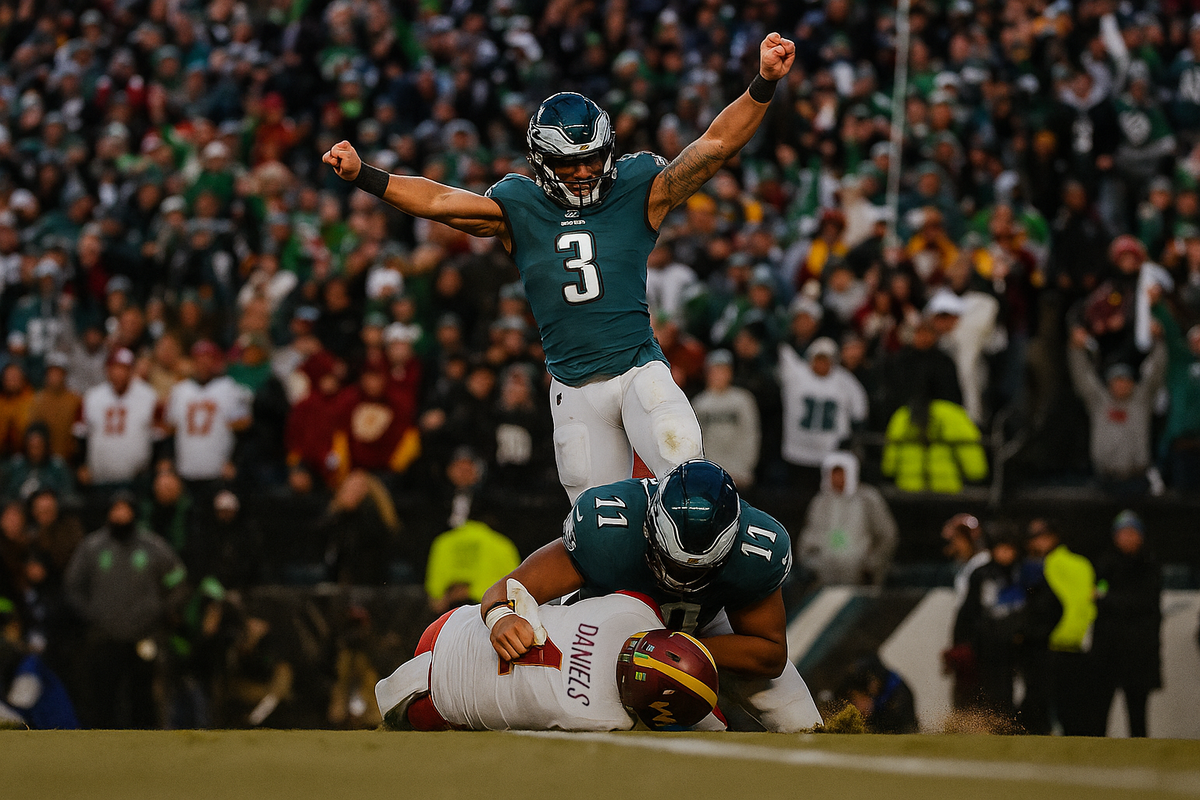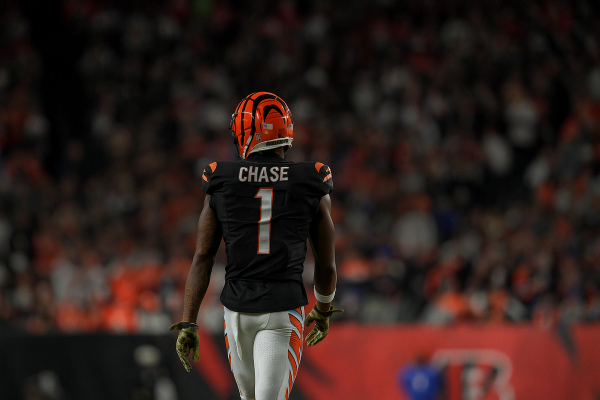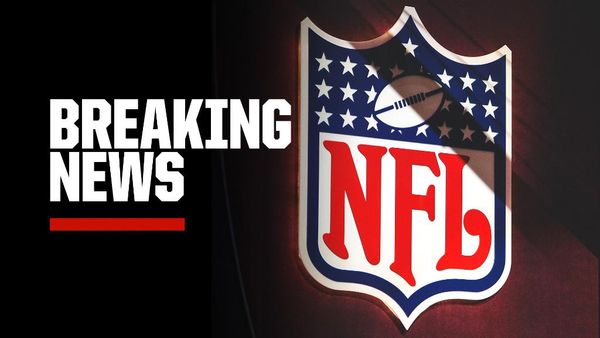The Divisional Game Delusion: Why 'They Know Each Other' Doesn't Mean What You Think


James White
Co-Founder of HotTakes
"Division games are always close. These teams know each other so well." You've heard it a thousand times. You've probably said it yourself. And every time you base a betting decision on this logic, you're falling for one of the most persistent myths in sports betting.
Here's the reality: familiarity between division rivals doesn't create the predictable patterns that casual bettors think it does. While you're busy assuming every Cowboys-Eagles game will be a nail-biter because "division rivalry," sharp money is exploiting the mathematical reality that familiarity often leads to blowouts, not competitive games.
The divisional game delusion isn't just wrong. It's expensive. Understanding what familiarity actually means in competitive sports versus what bettors think it means is the difference between systematic profit and systematic losses.
The Familiarity Fallacy Explained
The idea that "knowing your opponent" creates competitive balance sounds logical on the surface. Teams play each other twice a year, they study each other's tendencies, they know each other's personnel. Surely this creates more evenly-matched contests, right?
Wrong. Familiarity doesn't neutralize talent gaps. It doesn't make bad teams better or good teams worse. What it actually does is reduce variance by eliminating surprise elements. And when you reduce variance in a matchup between unevenly matched teams, you often get more predictable outcomes, not less.
Think about it this way: if a superior team knows exactly what an inferior opponent is going to do, and the inferior opponent knows they can't surprise the superior team with anything unexpected, what happens? The better team executes their game plan more efficiently because there are no curveballs to deal with.
This is the opposite of what casual bettors expect. They think familiarity creates chaos and unpredictability. In reality, it often creates efficiency and predictability. The team that's better on paper frequently performs even better against familiar opponents because they've eliminated the unknown variables that sometimes create upset opportunities.
Why Broadcasters Sell This Narrative
Every time a divisional game comes up, you'll hear commentators talking about how "these teams know each other so well" and how "anything can happen in division games." This isn't analysis. It's narrative building designed to create viewer engagement.
Networks need you to believe every game matters and could go either way. They need the 2-8 team playing their 9-1 division rival to feel like competitive television. Saying "these teams are familiar with each other" is code for "please keep watching even though this might be a blowout."
The sports media ecosystem has a vested interest in promoting competitive balance narratives that may not reflect statistical reality. Tight games, upset potential, and unpredictable outcomes all drive ratings and engagement. Acknowledging that many divisional games are actually quite predictable doesn't serve those business interests.
As a bettor, you need to separate entertainment narratives from analytical reality. Just because broadcasters keep repeating that divisional games are unpredictable doesn't make it true. The data often tells a very different story.
What the Numbers Actually Show
Let's look at what happens when you analyze divisional game results across major sports. In the NFL, division games actually produce more blowouts (defined as wins by 14+ points) than non-division games. The familiarity factor doesn't create parity. It often amplifies existing talent gaps.
In the NBA, divisional matchups show no statistically significant difference in competitiveness compared to non-divisional games when you control for team quality. A 15-point favorite is just as likely to cover against a division rival as against a random opponent with similar talent levels.
Baseball might be the only sport where divisional familiarity creates measurable effects, but even there, the impact isn't what casual bettors think. Division games don't become coin flips. They just show slightly more consistency with historical patterns, which actually makes them more predictable for sharp analysis, not less.
The key insight across all sports is that talent disparities don't disappear just because teams play each other frequently. If anything, repeated matchups allow superior teams to exploit inferior opponents more efficiently because they've identified and practiced against specific weaknesses.
The Psychology Behind the Delusion
So why do bettors cling to this narrative despite evidence to the contrary? Because the human brain is wired to find patterns and create explanations for randomness. When an upset happens in a division game, it gets attributed to "rivalry intensity" or "familiarity breeding unpredictability."
But when the favorite dominates, that outcome gets explained away as the natural result of talent disparity. The familiarity narrative only gets invoked to explain surprising results, never expected ones. This selective application reinforces the belief that division games are special without any actual statistical backing.
This is called confirmation bias, and it's particularly strong with division games because everyone has personal experience with the teams involved. If you watch your team play division rivals multiple times per year, you remember the close games and forget the blowouts. The memorable moments create stronger neural patterns than the routine outcomes.
The emotional intensity of rivalry games also tricks your brain into thinking they're more competitive than they actually are. A 10-point loss feels closer when it's against your hated rival than when it's against some random team, so your memory encodes it as "competitive" even when the score never indicated a close game.
When Familiarity Actually Matters
Here's where divisional game analysis gets nuanced: familiarity does matter in specific situations, just not in the way most bettors think. The key is understanding when familiarity creates exploitable edges versus when it's just noise.
Familiarity matters most when there are significant coaching or scheme matchups. If one coach has historically had success against another coach's system, that pattern often persists in divisional matchups. This isn't about the players "knowing each other." It's about systematic advantages in play-calling and strategy.
Familiarity can also matter in very specific situational spots, like third-down efficiency or red-zone performance, where teams have accumulated enough data on each other's tendencies to make meaningful adjustments. But these edges are usually small and only relevant if other factors are relatively equal.
What familiarity absolutely doesn't do is turn bad teams into competitive opponents or make good teams vulnerable just by virtue of playing someone twice a year. Talent still matters most. Coaching still matters second. Familiarity might matter third, but only in very specific contextual situations.
The 'Any Given Sunday' Trap
The divisional game delusion is closely related to the broader "any given Sunday" fallacy that plagues sports betting. Yes, upsets happen. Yes, bad teams occasionally beat good teams. But "occasionally" doesn't mean "frequently enough to bet on profitably."
When casual bettors combine the "any given Sunday" mindset with the "division games are unpredictable" narrative, they start making terrible betting decisions. They back 10-point underdogs because "you never know in division games" and then act surprised when those bets lose 70% of the time.
The mathematical reality is that division games show roughly the same upset rates as non-division games when you control for point spreads. A 7-point favorite beats a 7-point underdog about the same percentage of time regardless of whether they're division rivals or random opponents.
Sharp bettors understand this and don't adjust their analysis based on divisional status unless there's specific, quantifiable evidence that supports doing so. They're looking for mathematical edges, not narrative-based rationalizations for betting underdogs they want to see win.
Market Inefficiencies in Division Game Betting
Here's where things get interesting for sharp bettors: while divisional games don't actually behave the way casual bettors think they do, the market often prices them as if they do. This creates exploitable inefficiencies.
Public money frequently inflates underdog lines in divisional games because recreational bettors overvalue the familiarity factor. When the Cowboys play the Eagles, casual bettors hammer the underdog assuming the game will be close because "division rivalry." This moves the line in ways that don't reflect actual probability.
Smart money recognizes these situations and takes the inflated favorite line. They're not betting on division games being special. They're betting on other people believing division games are special and creating value through that belief.
The opposite situation can also create value. When a bad division rival catches an elite team looking ahead to a bigger game, the public might overbet the favorite assuming they'll dominate their "little brother." If the situation suggests potential letdown or trap game dynamics, sharp money might actually take the inflated underdog number.
Breaking Down Common Division Game Myths
Let's systematically destroy the most common divisional game misconceptions that cost bettors money:
Myth 1: "The underdog always plays the favorite tough in division games."
Reality: Underdogs cover at roughly the same rate in division games as non-division games. Talent gaps persist regardless of familiarity.
Myth 2: "Division games are lower scoring because defenses know the offenses so well."
Reality: Average point totals in division games are statistically indistinguishable from non-division games in most sports and most seasons.
Myth 3: "Home field advantage matters more in division games."
Reality: Home field advantage is actually slightly smaller in division games because visiting teams are more familiar with the venue and have less travel disruption.
Myth 4: "You should always bet unders in division games."
Reality: This strategy shows no edge historically and is based purely on the perception that familiarity leads to defensive dominance.
Myth 5: "Playoff implications make division games more competitive."
Reality: Stakes might be higher, but competitiveness still correlates with talent levels, not divisional status.
The Coaching Matchup Exception
The one area where divisional familiarity consistently creates measurable effects is in specific coaching matchups. When one coach has demonstrated systematic success against another coach's schemes over multiple years, that pattern often continues.
This isn't about players knowing each other. It's about one coaching staff identifying and exploiting structural weaknesses in another coaching staff's philosophy that persist across personnel changes. These edges are real and exploitable.
For example, if a defensive coordinator consistently schemes effectively against a particular offensive system, that advantage persists even when players change. The schemes remain relatively stable, and the defensive coach has built a playbook for attacking those schemes.
Sharp bettors track these coaching matchup histories and give them appropriate weight in divisional game analysis. But they're not betting division games differently because of some vague "familiarity" concept. They're betting specific systemic advantages that happen to show up more clearly in division games because of increased sample size.
The Recency Trap in Division Games
One of the most dangerous betting mistakes in divisional matchups is overweighting the most recent game between the teams. Casual bettors see that Team A destroyed Team B by 30 points three months ago and assume the rematch will play out similarly.
Sometimes it does. Often it doesn't. The specific circumstances of that first meeting might not be replicable in the rematch. Maybe key players were injured. Maybe weather was a factor. Maybe one team had a brutal schedule stretch while the other was well-rested.
Professional analysis looks at why the first result happened and whether those factors still apply, not just that it happened. If the blowout came from unsustainable elements like special teams returns or defensive touchdowns, expecting a repeat is foolish.
The reverse is also true. Just because the first meeting was close doesn't mean the rematch will be. If the first game was close because of fluky turnovers or unusual circumstances, the rematch might look completely different once those variance elements regress to mean.
Building a Systematic Approach
The solution to divisional game delusion isn't to completely ignore divisional status. It's to give it the appropriate weight in your analysis, which is usually much less than casual bettors assign.
Start by analyzing division games with the same fundamental criteria you'd use for any other game: talent levels, injury situations, scheduling factors, coaching matchups, and statistical trends. Divisional status should be a minor consideration, not a primary one.
If your analysis process changes significantly just because a game is between division rivals, you're probably letting narrative override mathematics. The burden of proof should be on explaining why this particular divisional matchup creates value, not on assuming all division games are special.
Track your results on division games separately to see whether your assumptions are actually helping or hurting your bottom line. Most bettors discover they've been giving divisional status too much weight and their results improve when they treat these games more neutrally.
When analyzing player props in division games, similar principles apply to how fantasy football thinking can create market inefficiencies that sharp bettors can exploit through systematic analysis.
The Social Proof Problem
Division game delusion is amplified by social proof and groupthink. When everyone in your betting community is talking about how "you can throw out the records in division games," it becomes psychologically difficult to bet against that consensus.
But consensus opinions in sports betting are often where the worst value lies. If everyone believes division games are unpredictable, the market will price them as if they're unpredictable, which might actually make them more predictable for contrarian bettors.
Breaking free from social proof requires trusting your own analysis over popular narratives. If your systematic evaluation says a 10-point favorite should be a 10-point favorite regardless of divisional status, don't let the crowd convince you otherwise without quantifiable reasons.
The best bettors are comfortable being contrarian when their analysis supports it. They understand that the majority opinion is often wrong specifically because it's the majority opinion. Market inefficiencies exist because most people make the same systematic mistakes.
Long-Term Performance Tracking
The only way to know whether your divisional game betting approach is working is through rigorous long-term tracking. Separate your division game results from your overall results and calculate your return on investment specifically for these matchups.
Most bettors are shocked to discover that their division game betting significantly underperforms their non-division game betting. The emotional narratives and familiar team dynamics lead to decisions that feel right but produce poor results.
If your tracking shows consistent losses on division games, the solution is probably to bet fewer of them or adjust your approach to treat them more like regular matchups. The special circumstances you think you're identifying probably aren't as significant as you believe.
Conversely, if you discover genuine edges in division game betting, double down on those specific situations while remaining skeptical of the broader narrative. Maybe you've found that home underdogs in division games provide value, or that unders hit more often in specific division matchups. Those specific edges are worth exploiting.
Bottom Line: Familiarity Doesn't Equal Unpredictability
The divisional game delusion costs bettors millions every season because it feels true even when the data proves it false. The narrative that familiar opponents create unpredictable contests is compelling, memorable, and completely unsupported by statistical analysis.
Talent disparities don't disappear because teams play each other twice a year. Coaching advantages don't vanish because of familiarity. And betting favorites at inflated lines or underdogs at deflated lines based on divisional status alone is a systematic way to lose money over time.
The path to profitable division game betting is treating these matchups with the same analytical rigor you'd apply to any other game. Familiarity might matter in very specific contexts related to coaching matchups or scheme advantages, but it doesn't create the wholesale unpredictability that casual bettors imagine.
When you hear someone say "these teams know each other so well" as justification for a betting decision, recognize it for what it is: narrative-based thinking masquerading as analysis. Sharp bettors know better. They understand that knowing your opponent doesn't make you more competitive if you're simply not as good.
The sooner you abandon the divisional game delusion and start analyzing these matchups based on actual competitive factors rather than familiarity narratives, the sooner your results will improve. Division games aren't special. They're just games between teams that happen to play each other more frequently. Treat them accordingly, and your bankroll will thank you.

